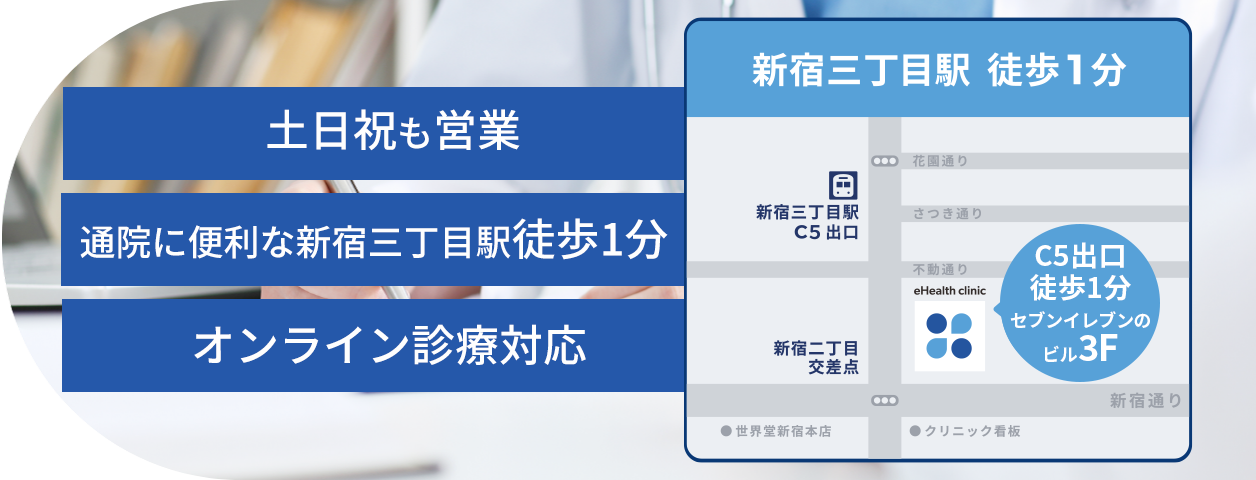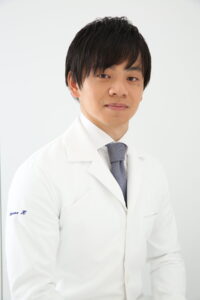ウゴービを安い価格で処方してもらう方法!費用を抑えるポイント


Chlamydia is the most common sexually transmitted infection (STI) among Japanese people and anyone who is sexually active can get it. STIs are infections that can be passed from one person to another through sexual contact or activities. Chlamydia mainly spreads through vaginal, anal, or oral sex. It is more common in young women and can cause infertility and mother-to-child transmission. Chlamydia and other STIs do not go away on their own and need to be treated.
Chlamydia Symptoms In men, the most common symptoms are pain when urinating, discomfort or itching in the urethra, and discharge or pus from the penis. In women, the most common symptoms are vaginal discharge of mucus or pus, frequent or painful urination, pain during sex, and bleeding between periods. However, about 75% of women and 50% of men with chlamydia may not have any symptoms and may not know that they are infected. If left untreated, the infection can lead to serious complications such as ectopic pregnancy (when a fertilized egg implants outside the uterus), pelvic inflammatory disease (when the infection spreads to the uterus, fallopian tubes, or ovaries), and infertility.
At eHealth Clinic Shinjuku’s outpatient clinic for STIs, chlamydia treatment starts with a test. The specific steps of treatment are as follows.
■Reservation fee 5,500 yen (tax included)
Reservation fee will be charged when you make a reservation. If you change your reservation within 3 business days of the reservation date, you will not be charged a new reservation fee.
Please note that cancellations are generally not refundable.
※Reservation fee is charged only when you make a reservation through the dedicated reservation form.
※Reservation time is only an estimate and may vary depending on other patients’ treatments, such as emergency response and urgent response.
※If you cancel a self-pay treatment reservation made through the dedicated reservation form on the day of the reservation, a cancellation fee of 100% of the cost will be charged.
Before treatment, a test is done to confirm whether you have chlamydia or not. The test uses urine, genital fluids, or gargle fluid, depending on where you may be infected.One of the tests used is “simultaneous identification of Neisseria gonorrhoeae and Chlamydia trachomatis DNA”, which tests urine, genital fluids, and gargle fluid. This test can detect both gonorrhea and chlamydia, which are pathogens of the same STI, from a single sample. The test uses a method called PCR to amplify the DNA of chlamydia from the collected urine and measure the antigen level.
If you visit the clinic, the test can usually be done on the same day, and the results will be ready in 4 to 5 days. Medication is also prescribed on the same day, so you can start treatment right away.
Chlamydia is treated with antibiotics. Antibiotics are drugs that kill or stop the growth of bacteria. If taken early and correctly according to the doctor’s instructions, the symptoms usually go away.
There are different types of antibiotics, but the first-line drug for chlamydia is azithromycin (Zithromax), a macrolide-based drug. The main advantage of this drug is that it is prescribed in tablet form and treatment can be completed with a single dose.
Our clinic also prescribes azithromycin (Zithromax). Usually, you take four Zithromax tablets (1000 mg) once. Follow the instructions of your doctor or pharmacist to make sure that you take the right dose for the prescribed time and amount.
Chlamydia does not have a cell wall (a membrane that covers the cells) around the bacteria, so antibiotics such as penicillins, cephalosporins, and carbapenems, which work by affecting the cell wall, are not effective. Therefore, do not use drugs on your own or take drugs given to you by someone else. Also, the main side effects of Zithromax may include diarrhea, abdominal pain, and nausea. If you notice any troubling symptoms, do not ignore them, but talk to your doctor or pharmacist.
It is recommended to wait 2-3 weeks after taking the medication before testing again to confirm whether the infection is gone or not. If the results are negative, the treatment is complete.
If you have any questions or concerns about chlamydia, talk to your doctor.
Some people may feel embarrassed or nervous about going to a hospital or clinic for chlamydia treatment, but there are no over-the-counter treatments available and STIs do not go away on their own, so do not ignore them and seek proper treatment at a medical facility. If you have any questions about chlamydia, talk to your doctor.
eHealth Clinic Shinjuku Clinic provides medical treatment for sexually transmitted diseases.
Although the treatment is at your own expense, we also offer online treatment, and we give the utmost consideration to patient privacy so that anyone can visit our clinic and receive treatment with peace of mind. Please feel free to consult with us if you have any concerns.
Features of eHealth Clinic’s outpatient clinic for sexually transmitted diseases
We are available for same-day treatment after examination.
We are open until 8:00 p.m. on weekdays and on weekends and holidays.
We also provide free online treatment.

We will send you a test kit and medicine by mail. The test kit and medicines will be sent to you by mail. The results will be returned in about one day.
The cost of the free treatment is as follows, which includes the treatment drugs.
Genital + throat chlamydia test set 16,500 yen (tax included)
Many people may want to avoid going to a hospital or clinic for chlamydia treatment, but there are no over-the-counter medications for chlamydia. To treat chlamydia, you need to get tested at a medical facility and get a prescription for medication.
STIs, including chlamydia, do not heal on their own. Without proper treatment, the bacteria will stay in your body. If left untreated, it can cause serious problems such as epididymitis (inflammation of the epididymis), endometritis (inflammation of the lining of the uterus), and infertility.
Both chlamydia and gonorrhea are STIs caused by different bacteria. Chlamydia infections are caused by Chlamydia trachomatis bacteria, while gonorrhea infections are caused by Neisseria gonorrhoeae bacteria. Both can be passed through vaginal, anal, or oral sex and cause symptoms such as urethritis (inflammation of the urethra) and vaginitis (inflammation of the vagina). Treatment involves taking antibiotics, but tests and treatments differ for each one.
■Reservation fee 5,500 yen (tax included)
Reservation fee will be charged when you make a reservation. If you change your reservation within 3 business days of the reservation date, you will not be charged a new reservation fee.
Please note that cancellations are generally not refundable.
※Reservation fee is charged only when you make a reservation through the dedicated reservation form.
※Reservation time is only an estimate and may vary depending on other patients’ treatments, such as emergency response and urgent response.
※If you cancel a self-pay treatment reservation made through the dedicated reservation form on the day of the reservation, a cancellation fee of 100% of the cost will be charged.
https://ehealthclinic.jp/medical/outpatient-fever/
https://ehealthclinic.jp/medical/std-sti/
https://ehealthclinic.jp/medical/sleep-medicine-service/
【1 minute walk from Shinjuku Sanchome Exit C5】
Director speaks English and Chinese. Available on Saturdays, Sundays, and national holidays. Open until 20:00 on weekdays. 24-hour web reservations available.Internal medicine, nephrology, allergology, urology.
Address: Shinjuku Dori Toyo Bldg. 3F, 2-6-4 Shinjuku, Shinjuku-ku, Tokyo 160-0022, Japan
・1 minute walk from Shinjuku Sanchome Station (Exit C5) on Tokyo Metro Marunouchi Line, Tokyo Metro Fukutoshin Line and Toei Subway Shinjuku Line
・7 minutes walk from Southeast Exit of JR Shinjuku Station
・5-minute walk from Shinjuku-Gyoenmae Station (Exit 2) on Tokyo Metro Marunouchi Line
If you have any questions, please don’t hesitate to let me know.
Email:contact@ehealthclinic.jp

Hoichi Amano (M.D.,PhD)
・Administrator of eHealth clinic
・Visiting lecturer (School of Public Health,Teikyo University)
・Locum Doctor (Teikyo University Chiba Medical Center)
・Occupational health physician for several companies
• Education
2018 – 2021 Doctorate in Public Health, Teikyo University Graduate School of Public Health, Tokyo, Japan
2016-2018 Master’s Degree in Public Health, Teikyo University Graduate School of Public Health, Tokyo, Japan
2004-2010 M.D., Saitama Medical University, Faculty of Medicine, Saitama, Japan
• Certifications
Board Certified Member of the Japanese Society of Internal Medicine
Board Certified Nephrologist of the Japanese Society of Nephrology
Board Certified Member of the Japanese Society of Anti-Aging Medicine
Occupational Medicine Physician
Master of Public health
Doctor of Public health
If you have any questions or concerns, please feel free to contact us here.(We will respond during business hours.)
https://ehealthclinic.jp/contact/
■Reservation fee 5,500 yen (tax included)
Reservation fee will be charged when you make a reservation. If you change your reservation within 3 business days of the reservation date, you will not be charged a new reservation fee.
Please note that cancellations are generally not refundable.
※Reservation fee is charged only when you make a reservation through the dedicated reservation form.
※Reservation time is only an estimate and may vary depending on other patients’ treatments, such as emergency response and urgent response.
※If you cancel a self-pay treatment reservation made through the dedicated reservation form on the day of the reservation, a cancellation fee of 100% of the cost will be charged.